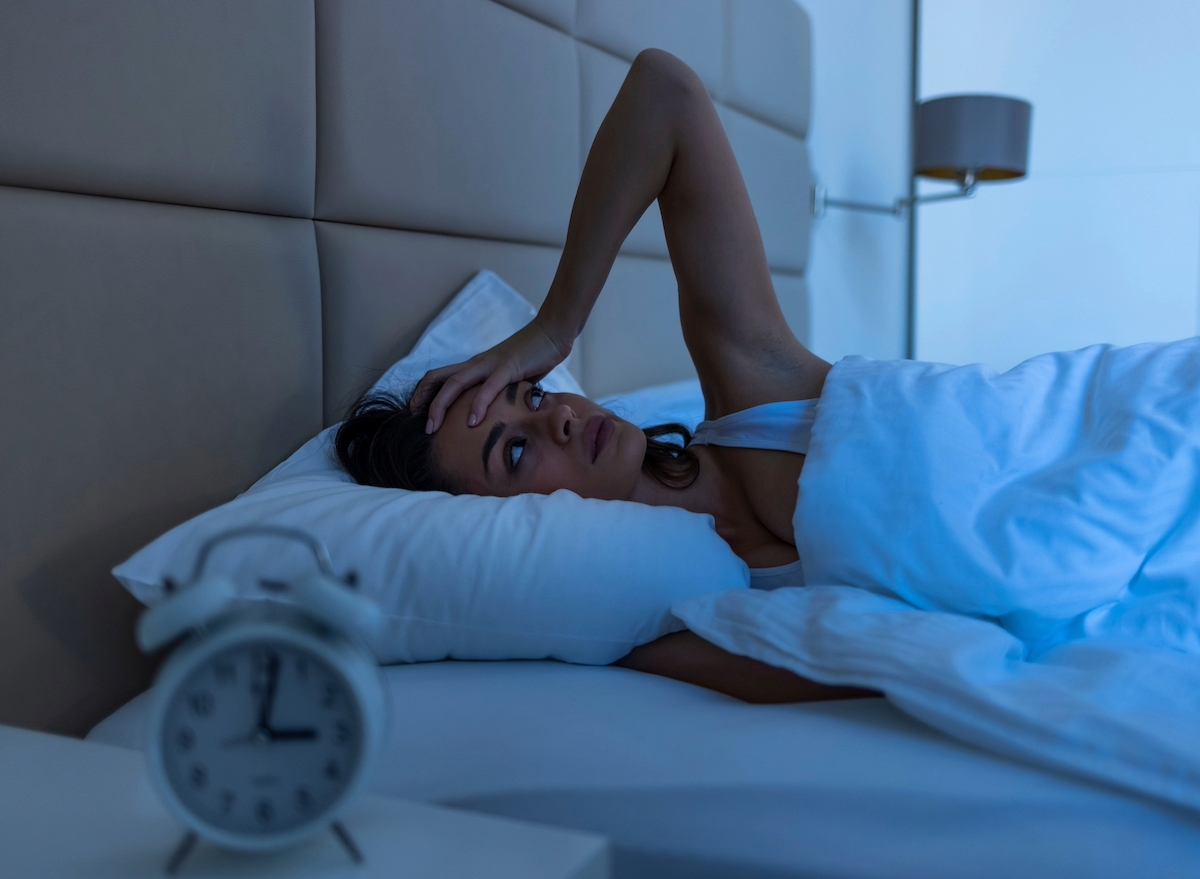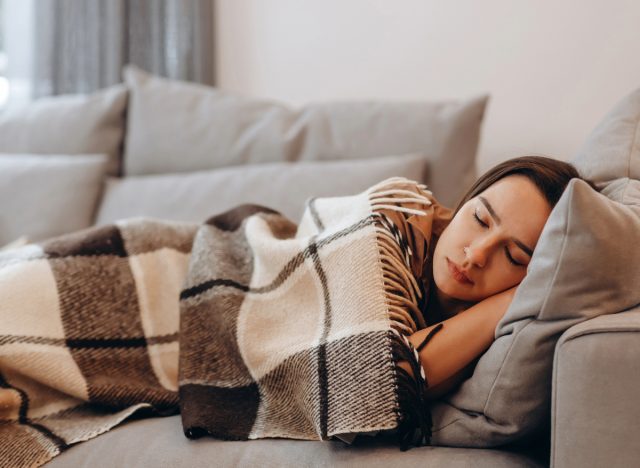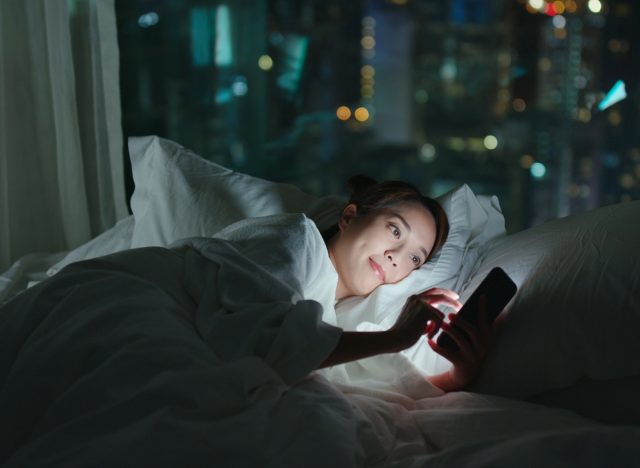
Most individuals will agree that having a comfortable, solid night of Z's is essential in order to wake up feeling well-rested and refreshed before starting your day. But what you may not know are the many habits you're doing on the regular that can cost you hours of precious, necessary sleep each night. Some of these rituals may surprise you! We spoke to Dorsey Standish, MS, a mechanical engineer, neuroscientist, wellness expert, and CEO of Mastermind Meditate, and are here to fill you in on four surprising habits that ruin your sleep.
According to the American Sleep Apnea Association, around 50 to 70 million Americans deal with sleep disorders, and one out of three adults—which amounts to about 84 million individuals—don't get the recommended amount of nightly Z's. It's important to learn the culprit that's keeping you from sleeping the recommended seven-plus hours each night. Read on to learn the habits that can ruin your sleep so you can address them ASAP. And when you're done, don't miss the 10 Things You Should Do Every Morning for All-Day Energy.
Not getting any natural sunlight during the day

You may be surprised to hear that the amount of sunlight you get during the day can impact how well you sleep at night. "Getting good sleep is not just about the seven to nine hours at night—it's also about syncing up with the earth's circadian rhythm for all 24 hours of the day," explains Standish. "When we stay inside all day and miss out on strategic morning and evening natural light, we miss out on the natural light exposure that governs sleep as well as digestion, heart health, mood, and energy."
For better sleep and optimal health, Standish recommends heading outdoors to enjoy some natural sunshine on your eyes and body "at strategic intervals" when you wake up and later on in the afternoon.
Dozing on the couch

So many of us are guilty of this habit, which is getting cozy and dozing off on the couch while watching TV. "While it can be tempting to cozy up and nod off during your last Netflix episode, this habit of falling asleep elsewhere impacts sleep quality and quantity," says Standish. "Napping on the couch in the evening relieves accumulated 'sleep pressure,' or our biological drive to rest after many hours of wakefulness. While it feels good in the moment to snooze, an evening nap may make it more difficult to fall back asleep when we transition to bed because our sleep pressure has been reduced."
Dozing off on your sofa is also a major contributor to disrupted sleep, which can result in many negative health issues since your body needs consistent rest to fully restore itself. The takeaway from this? Standish encourages you to avoid napping or dozing off while relaxing on the couch. Instead, get up, and get into bed as soon as you start to feel those eyelids get heavy!
Taking a cold shower or plunge at night

This may be a refreshing habit for you, but by showering in cold water, you increase your internal body temp, Standish says. This in turn wakes up your body rather than relaxing it for bedtime.
Standish suggests, "If you want to add cold exposure to your health regimen, try completing your shower or plunge in the first half of the day, when the wakefulness boost will also align with the rhythm of your day and help your productivity. In the evening, taking a hot bath or shower will serve you better by promoting a drop in body temperature and priming you for sleep."
Scrolling through social media

Getting engrossed in social media when you curl up in bed is a bad habit to ditch pronto. Even if you use blue light blockers, engaging with any screen—especially scrolling through social media—stimulates your nervous system and wakes up your body rather than signaling it's wind-down time.
"Even passive scrolling on social media promotes cognitive and emotional engagement, due to the combination of unpredictable, often emotional content, and the potential for never-ending scrolling," Standish tells us. "If you love looking at photos to wind down, try looking at your own camera roll of recent happy pictures (you can even do so together with your partner). In this way, you are engaging with a more controlled and predictable media environment that helps you feel supported socially and emotionally."









